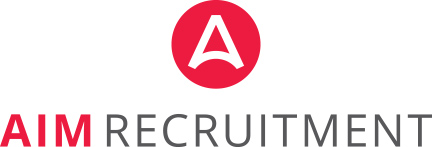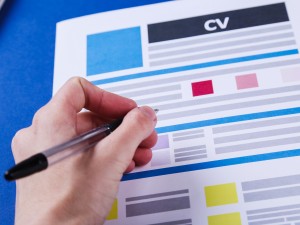Do not feel intimidated by the prospect of the interview. You have been invited for a reason. The interviewer needs to fill the position and hopes you are the right person for the job.
Preparation:
Preparation is crucial to your confidence and creating a good impression.
Research the company
A good starting point is the internet: information relating to companies, financial data, industries and business trends is readily available. If you find information is limited call direct and request a brochure or corporate information.
Understand the product range
What do they make, what processes do they use, what type of issues does this type/this particular business business face, who do they supply … Consider how you can apply your experience to demonstrate your suitability to this particular business.
Determine the Company Culture
If you are going to become part of an organisation you need to have a personality that fits into the company culture. This is a two way match; you have to be sure it’s right for you.
Establish the background of the interviewer
Find out what you can about your interviewer. Building rapport in interview based on previous employers, experiences or mutual acquaintances can make an interview a far more positive experience.
Prepare for the types of questions you will be asked
Anticipating the types of questions and considering how you will answer will help you to appear confident, capable and well prepared in the interview. Concentrate on what you have to offer by way of qualifications and experience and how they can be applied to the new role and business.
Prepare questions you want to ask
Questions should highlight your interest in the position and demonstrate your knowledge of the company, it’s history, successes and problems. They should be tailored to the interviewer: general questions if the interviewer is an HR representative and more specific to the role if the interviewer is the departmental manager. Do not ask a question you should know the answer to. Avoid questions about salary, benefits and facilities until after you have been offered the job.
Make travel plans
Ensure you know the exact location and time of your interview. Plan your route in advance including where you will park or, if using public transport, how you will make the final leg. Do a dummy run if you are not sure. Make sure you have a mobile phone and a telephone number so that you can ring ahead if circumstances beyond your control are making you late. Aim to arrive 15 minutes before your appointment allowing yourself time to relax and prepare.
The Interview:
Bear in mind the three elements being investigated:
- Are you the right person for the job?
- What is your potential for promotion?
- Will you fit into the company environment?
Creating the right impression:
Without realising it interviewers will judge a candidate within the first few minutes of meeting.
Dress appropriately
If you are arriving straight from work and will not be wearing a suit it is advisable to let the interviewer know in advance. Keep jewellery, make up and perfume to a minimum. Taking trouble over your appearance shows the employer that the job is important to you.
Arrive on time
If possible around 15 minutes before your interview. Arriving late or excessively early are indications of an inability to adequately manage time.
Be aware of your body language
Nerves are to be expected but if you appear too nervous you may cast doubt upon your ability to do the job. Speak clearly, make eye contact, smile, when shaking hands make sure your grip is firm, sit up straight and do not fidget. Leaning slightly forward and mirroring the interviewer’s body language are techniques that are often used to create the right impression.
Brush up on your Interview techniques:
Do's
- address the interviewer by their title (Mr/Ms …) unless/until invited to do otherwise.
- make sure you know every sentence on your CV and can explain your responsibilities and achievements in all of your previous roles.
- listen to and answer the question actually asked not the one you wish had been asked.
- be prepared to provide specific examples of achievements drawing on work based examples to demonstrate your point and back up your response to questions. Always include the benefits to the company of the projects and work you have undertaken. Quantifying meaningful savings you have made for previous employers will increase your credibility and your value; you will be viewed as an asset rather than merely a cost.
- be precise when responding but cover all the key points.
- be open and honest with the interviewer.
- remain positive no matter how you feel the interview is going.
- ask at the end of the interview whether there are any points you can clarify.
- prepare equally thoroughly for follow-up interviews. Candidates for senior positions are rarely selected on the basis of one just interview.
Dont's
- waffle.
- get drawn into discussing an issue that you cannot substantiate.
- make negative comments about previous employment.
- ask about the salary and benefits at a first interview.
- relax too much on a second or even third interview, although subsequent interviews may be more informal remember you are still being assessed.
Answer the questions asked:
How would you describe yourself?
Emphasise the attributes you have that will enhance your suitability for the position.
What are your long-term goals?
Give a positive and realistic response, demonstrating commitment and enthusiasm for this job. Include how you expect you will grow in the role and what you hope to do in order to help your chances of progressing within the company.
Why did you leave your last job?
Be positive. More responsibility, wider opportunities, increased income … the possibilities are endless HOWEVER, do not be detrimental about your previous employer. If you were made redundant say so, it does happen.
Why do you want this job?
Give a positive career focused response. Increased responsibility, better career progression opportunities, increased income … Not simply because it’s closer to home …
What are your strengths?
Highlight your accomplishments and experiences relevant to the position for which you are applying giving examples of situations where your strengths have been demonstrated.
What are your weaknesses?
Do not mention a weakness that could in any way affect your ability to perform the job you are being interviewed for. Use the question to your advantage by recognising a weakness but explaining how you are overcoming the weakness which will show you are willing to improve.
What are your interests outside of work?
Avoid the standard reading, socialising … Try and describe interests that are relevant to the job you are applying for.
Why do you want to work here?
Drawing on research into what the company has to offer respond enthusiastically about the job and industry.




